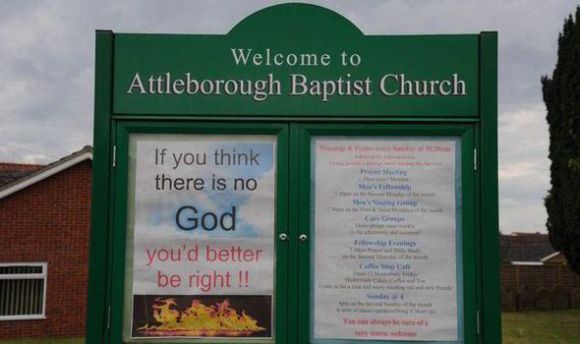Here are some resources to help you strengthen your prayer life. These are “extras” from a sermon preached at Pinedale Christian Church on November 1, 2015.
Sermon Audio: Click HERE.
The Most Important Thing – Read this first – We are conditioned to treat prayer as a wish-list that we take to God. We imagine that God is some cosmic Santa Claus, and we climb up on his lap and tell Him everything that we want, and we call that “prayer-time.” That’s not what God had in mind when He commanded us to pray. Instead, the Bible presents prayer as 2-way communication between God and us. Prayer includes any way that we listen to Him, including time that we spend meditating on His Word, and it also includes our praise and Worship, our confessions, and our requests that flow out of our relationship with Him.
All that to say, prayer is all about having a healthy relationship with God. It IS NOT about manipulating God to do what you desire. It is about knowing Him more intimately, and partnering with Him as you journey through life. SO, when you read “keys to answered prayer”, or ways to make prayer time more meaningful, just remember that those aren’t suggestions to teach you to force God’s hand in prayer. They are ways to connect you more intimately with your Father. The more we spend time with Him – the more we know Him. The more we know His will, the more likely our prayers will align to His will.
5 Tips For Prayer
- Stop – Jesus often stopped everything he was doing in order to go off by himself and pray (see Luke 5:16). Let us follow Jesus’ example and practice actually stopping everything we’re doing in order to be with our Father. It’s a way we can demonstrate our belief that God is more important than anything else.
- Reflect – Reflecting on how God is at work in our lives on a daily basis is an essential part of prayer. Many Christians have found that journaling or practicing the Examen are a couple helpful spiritual disciplines that help us discern how God is working in our lives.
- Confess – Be real with God. Tell him genuinely what’s on your heart and mind. This might take the form of a 20-minute monologue or a half-hour of tears or anger. Being honest about where you are spiritually—your hopes, worries, frustrations, or failures—is essential.
- Respond – As you pray and spend time in Scripture and learn to discern God’s voice, he may present you with an invitation to act. When you sense him calling you to do something, respond. Don’t sweep the invitation—whether it’s to pray, serve, forgive, submit, generously give, etc.—under the rug. Act on it. And notice how God uses that. By responding, we cultivate hearts that are soft and ready to respond to God, rather than remaining complacent or indifferent.
- Forgive – God takes unforgiveness seriously. In Scripture, he says that we shouldn’t even bother worshiping him until we work out our conflicts with one another (see Matthew 5: 23-24). Unforgiveness, bitterness, and hate are like poison to our souls that damage our relationship with God. If we have experienced God’s grace in our lives, we must be willing to extend God’s grace to others.
Click HERE for Entire Article.
Great Prayers From the Bible:
- Genesis 18: Abraham’s plea for Sodom.
- Exodus 15: Moses’ song to the Lord.
- Exodus 33: Moses meets with God.
- 2 Samuel 7: David’s response to God’s promises.
- 1 Kings 8: Solomon’s dedication of the temple.
- 2 Chronicles 20: Jehoshaphat prays for victory.
- Ezra 9: Ezra’s prayer for the people’s sins.
- Psalm 22: A cry to God for help.
- Psalm 104: A prayer of praise.
- Daniel 9: Daniel’s prayer for the salvation of Jerusalem.
- Habakkuk 3: A prophet’s prayer of acceptance.
- Matthew 6: The Lord’s prayer.
- John 17: Jesus’ prayer for his disciples.
- Colossians 1: Paul’s prayer of thanksgiving.
7 More Tips For Prayer (from Norman Vincent Peele) –
What should you say when you pray?
- Just talk to God as a child would talk to a father whom he loves and with whom he feels in harmony. Tell the Lord everything that is on your mind and in your heart.
- Talk to the Lord in simple everyday speech. Do not use an exaggerated formal speech. You would not talk to your father that way, and He is your Heavenly Father. In public prayer, it is perhaps proper to address God more formally. But in personal, private prayer you might, for example, say “You” to God rather than “Thou.” This does not diminish respect for Him but serves to make the relationship more natural.
- Tell God what you want. Tell Him you would like to have it if He thinks it is good for you. But also say and mean it, that you will leave it to Him to decide, and you will accept His decision as best for you and others involved. If you do this regularly it will be possible for God to give you the wonderful things that you should have. It is frightening, the marvelous things we miss because we insist upon something else, something only a fraction as fine as He wants to give us.
- Practice praying during the day. For example, talk to God as you drive your car. If you had a friend with you, you would talk to him or her, would you not? Then imagine the Lord is there, for He is, and just talk to Him about everything. If you are waiting for a bus, talk with Him. But at night, when you go to bed, I recommend that you kneel by the bed and pray. However, if this has been your custom and if it has become merely a formality, get into bed, relax and then pray.
- Words are not always necessary when you pray. Think how good God is, how kindly, and that He is by your side guiding you and watching over you.
- Try helping others by your prayers. Pray for the troubled or the ill. Pray for your loved ones, for people you do not like, and for those who have not treated you well. It will do more for you to pray for those you resent than for those you love. If you doubt this, try it for six months and see what happens. Prayer is an emanation of power. Select some person who may be a problem to you and shoot prayers at him. Conceive of yourself as surrounding him with healthy prayers, goodwill, and faith. I have seen the most astounding, almost unbelievable, results.
- Do not make all your prayers into the form of asking God for something. Let your prayer consist of all the wonderful things that have happened to you. Name them, thank God for them and make that your whole prayer. You will soon find that these prayers of thanksgiving grow longer and longer, and you will have more and more things for which to thank God.
Click HERE For Entire Article:
Some Classic Prayers
LUTHER’S MORNING PRAYER: My Heavenly Father, I thank You, through Jesus Christ, Your beloved Son, that You kept me safe from all evil and danger last night. Save me, I pray, today as well, from every evil and sin, so that all I do and the way that I live will please you. I put myself in your care, body and soul and all that I have. Let Your holy Angels be with me, so that the evil enemy will not gain power over me. Amen.
LUTHER’S EVENING PRAYER: My Heavenly Father, I thank You, through Jesus Christ, Your beloved Son, that You have protected me, by Your grace. Forgive, I pray, all my sins and the evil I have done. Protect me, by Your grace, tonight. I put myself in your care, body and soul and all that I have. Let Your holy angels be with me, so that the evil enemy will not gain power over me. Amen.
FROM “THOUGHTS FROM SOLITUDE” BY THOMAS MERTON: My Lord God, I have no idea where I am going. I do not see the road ahead of me. I cannot know for certain where it will end. Nor do I really know myself, and the fact that I think I am following your will does not mean that I am actually doing so. But I believe that the desire to please you does in fact please you. And I hope that I have that desire in all that I am doing. I hope that I will never do anything apart from that desire. And I know that if I do this you will lead me by the right road, though I may know nothing about it. Therefore I will trust you always though I may seem to be lost and in the shadow of death. I will not fear, for you are ever with me, and you will never leave me to face my perils alone.
MORNING PRAYER: Everywhere I walk let it be on Your path. Everything I see let it be through Your eyes. Everything I do let it be Your will. Every hardship I face let me place it in Your hands. Every emotion I feel let it be Your spirit moving in me. Everything I seek let me find it in Your love. My Dear God, I thank You for this day. I ask not to know where I am going. I ask only to know and feel in the depths of my heart and soul that You are with me that You are guiding me that I am safe in the protection of Your loving care. In Jesus name I offer myself to You. Amen. (author unknown)
SERENITY PRAYER: God, grant me the serenity to accept the things I cannot change; Courage to change the things I can: and wisdom to know the difference. Living one day at a time; Enjoying one moment at a time; Accepting hardship as the pathway to peace. Taking, as He did, This sinful world as it is Not as I would have it. Trusting that He will make all things right if I surrender to His will That I may be reasonably happy in this life, And supremely happy With Him forever in the next. (Reinhold Niebuhr)
PRAYER OF ST. FRANCIS OF ASSISI: Lord, make me an instrument of thy peace, Where there is hatred, let me sow love. Where there is resentment, let me bring forgiveness. Where there is discord, let me bring harmony. Where there is error, let me bring truth. Where there is doubt, let me bring faith. Where there is despair, let me bring hope. Where there is darkness, let me bring joy. Guide me that I may not so much seek to be consoled as to console, To be understood and to understand, To be loved as to love. For it is in giving that we receive, In forgetting ourselves that we find ourselves, In forgiving that we are forgiven. And it is in dying that we are born to eternal life.
Some Stats About Prayer:
Click HERE For Entire Article
“Only about 12 percent of Americans who pray say they pray for government officials, while few (5 percent) pray for celebrities. Among other things people have ever prayed for are parking spots (7 percent), other people to be fired (5 percent), or to avoid being caught speeding (7 percent). Sports teams have received a bit more prayer support (13 percent) while about one in five (21 percent) Americans who pray say they have prayed to win the lottery. Fifteen percent have prayed something bad they did will not be discovered.”
Prayer, Does It Matter by Phillip Yancey – Excerpts For Discussion – http://media.zondervan.com/media/samples/pdf/9780310275275_samptxt.pdf
Six Keys To Answered Prayers (from a sermon by Adrian Rogers):
Pray in Jesus’ name
Pray in the Spirit
Pray in obedience
Pray in the will of God
Pray in fellowship
Pray in faith
Click HERE For Entire Article
How to Know When God Has Said NO (quoted from a sermon by Bob Russell): “How do you know when God says “no”? Well, sometimes it’s obvious. You pray that your daughter not marry that guy, and she marries the guy and it’s over. You pray you get the promotion; you don’t get the promotion. God said “no.” Sometimes you just sense it in your spirit somehow. You pray and pray, and all of a sudden the heavens seem as brass and you say, “I think He said ‘no.’” Sometimes you get a lot of close Christian counselors who are wise, and they give you the same advice and you know it’s over. But until you have an obvious “no,” the Bible says, “Keep on asking. Keep on seeking.” “Men ought always to pray and not faint,” the Scripture says.”
Great Illustration From Adrian Rogers
I told some of you a while back a story that I think bears repeating right now, and I don’t like to repeat too much, but this is so apt. When I was down in Florida, pastoring a church as a young man, in college, I had a little country church down in the Indian River section of Florida where the finest citrus fruit—I believe—in the world is grown. And, I went down to that little country church out in the middle of the orange groves. And, one of the leading deacons down there, a kind man, who’d been so good to us through the years said, “Adrian, I want to give you some oranges from my grove to take back to college.” I said, “Very well, Mr. Ingram.” But, I wasn’t prepared, for he’d brought several huge duffle bags full of oranges, canvas sacks full of oranges. I said, “Mr. Ingram, Joyce and I can’t eat all of those oranges before they spoil.” He said, “Well, you take them back to college and give them away.” I said, “Very well.” And, so I put all of those oranges in the trunk of my automobile and drove them back to college, lugged them up the stairs to our second floor apartment there—garage apartment—and had all of those oranges there in a closet, and they were taking up a lot of space and they were starting to mildew, and starting to spoil, and I just couldn’t give them away fast enough. It was certainly more than we could eat.
But, one afternoon—or noon time—Joyce had prepared soup and sandwiches for us between classes, and I was eating and I looked out in the back yard and I saw a little fellow about so high—knee-high to a grasshopper—sneaking around in the backyard. And, it became obvious to me that he was going to steal an orange out of my yard.
Now, we only had one orange tree and it was a sour orange tree. Have you ever tasted a sour orange? The most bitter fruit known to man. One bite and you have lockjaw. It’s unbelievably sour. And, this little fellow was going to—he didn’t know they were sour— and he was going to steal one. And, I just watched and I saw him as he took that orange and made his way off. I didn’t have much money, but I would have given a dollar to see him take the first bite. I thought about it. You know, the Bible says, “The bread of deceit is sweet, but afterward a man’s mouth shall be filled with gravel” (Proverbs 20:17). Well, it’s easy to make the same application to swiping sour oranges.
But, you know, the thing that I could not get out of my heart, and out of my mind, is this: Suppose that little fellow had come up those stairs, knocked on my door and said, “Mister, may I have one of those oranges?” You know what I would have said to him? “Absolutely not, because it’s sour. But, son if you will come in here, I will load you down with more oranges than you can carry, and the best. I’ve got oranges that are spoiling. I’ve got oranges that I need to get rid of.”
It’s going to amaze you when you get to Heaven friend. I believe God’s going to call you over and open the door to his storehouse and say, “Look in there. Do you see those blessings that are soured, and spoiled, and rusty and mildewed? Those are your blessings. Those are things I wanted you to have, those are things that I wanted to load you down with, but I couldn’t give them to you. You went your own way warring, and scheming, and planning and conniving, and figuring and you have not because you ask not.”






















